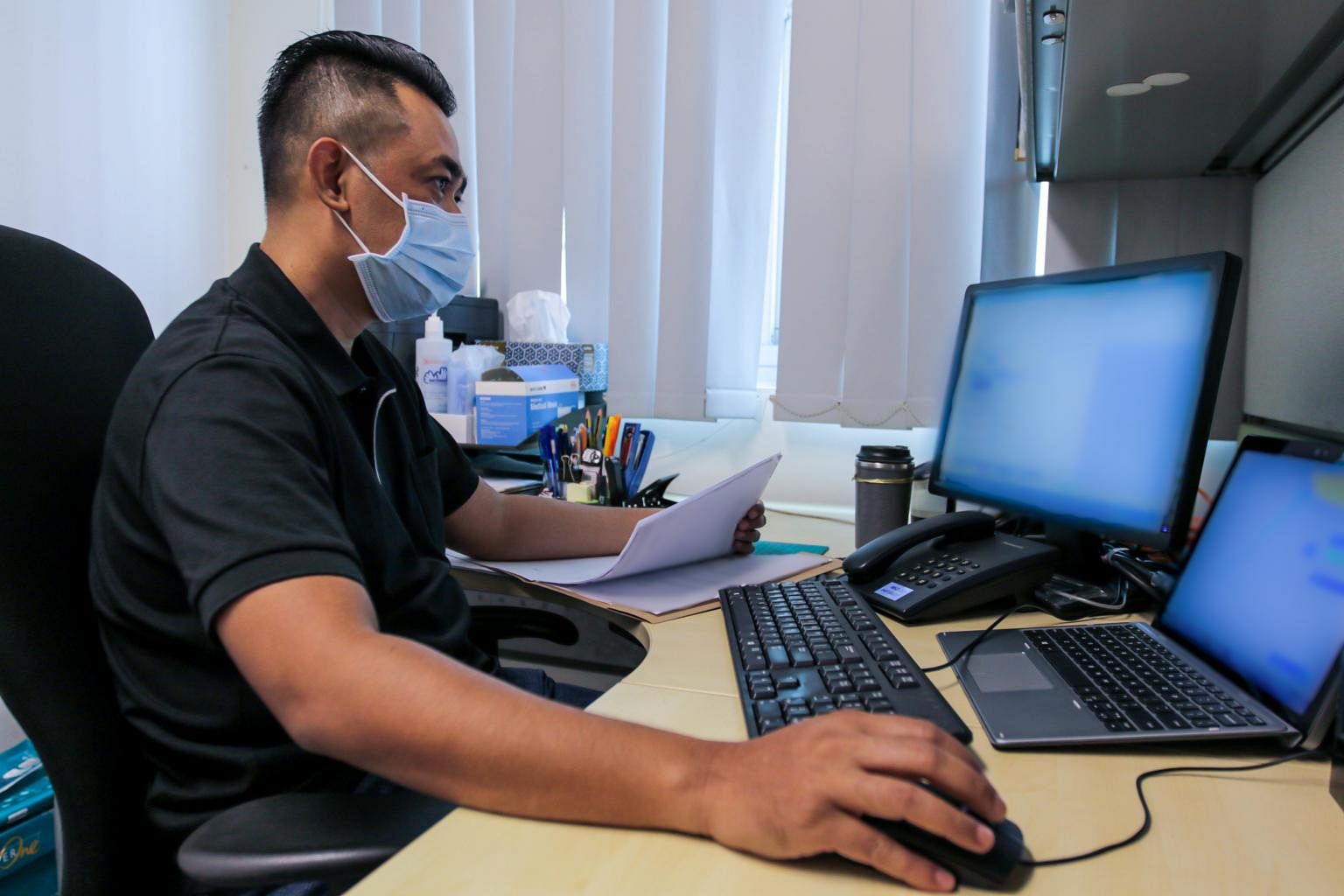From house visits to Zoom meetings: Keeping up with community policing
SINGAPORE – Inspector Lam Yew Keong is no stranger to policing in a pandemic.
He was deployed to Pasir Panjang Wholesale Centre during the Sars outbreak in 2003 to prevent unauthorised personnel from entering the market.
“My family was constantly worried as I frequently came into contact with strangers or worked in an environment that might expose me to the virus, such as hospitals,” said the 44-year-old, who is married with two children.
The experience has helped him and his family cope with anxieties over Covid-19, allowing him to focus on new challenges to community policing, especially amid the latest pandemic.
Insp Lam, who is deputy officer-in-charge of the community policing unit at the Queenstown Neighbourhood Police Centre (NPC), said one of the new challenges is educating the elderly about online scams, which have been on the rise.
The number of scams reported last year hit a record high, climbing 65.1 per cent from 2019, as scammers took more than $201 million from their victims.
The 15,756 reported cases of scams pushed the overall crime rate to its highest since 2009, although physical crime fell significantly.
“I used to do community outreach at a newer estate with younger residents. To engage them, we could put up information on social media, but for the elderly, it’s harder to reach out to them,” Insp Lam said.
While he used to go door to door to speak to elderly residents about crime trends in the area, he now works with eldercare centres to engage them online.
“Many residents who have not been victims of crime tend to think crime won’t happen to them. But it happens to everyone,” he said.
The Queenstown NPC Insp Lam is with is the first such centre to be set up in Singapore, in 1997.
It offers a wider suite of services than the neighbourhood police post (NPP), which was introduced in 1983 to promote community policing, based on Japan’s koban system of police boxes in every public housing estate.
There are now 35 NPCs and 62 NPPs in Singapore.
Today’s community policing system was introduced in 2012, with each NPC having a crime strike force and a community policing unit to enhance its services.
While the crime strike force tackles localised crimes, the community policing unit engages the community and conducts patrols.
Insp Lam and Inspector Muhammad Rostam Togiman, 42, who is deputy officer-in-charge of the crime strike force at Queenstown NPC, were speaking to the media about changes in community policing over the years.
Insp Rostam said having eyes and ears on the ground is essential to police work.
He recounted how he was able to catch a man who was selling contraband cigarettes in the Tanglin Halt estate in 2006 based on a tip-off from a resident whom he had befriended during his patrols.
In another case, a shoe theft, he received information about the suspect’s usual haunts from a cleaner and ambushed the suspect while dressed in plain clothes.
While police cameras are now widely installed in public residential estates and neighbourhood centres, and have helped greatly in identifying suspects, the need for close ties with the community remains, said Insp Rostam.
The years of efforts at engaging the community have been paying off, he added.
“People used to be more scared and wary of the police. Now, they’re more willing to work with us, and we reach out to the community more to build up that trust,” he said.
The pandemic, which has brought with it stress for some people, has also been an opportunity to show care on both sides.
Insp Rostam said that during his deployment at a government quarantine facility last year, he and staff from the National Community Leadership Institute provided books and toys to children of families being quarantined, and surprised them with birthday presents to help make their stay more comfortable.
And at a dormitory where he was on duty, the public and food and beverage companies gave food to the police and security staff.
“It is not often we get to see this,” he said. “The community came together in a difficult time to ease the duties of front-liners. It really shows the rapport we’ve built over the years.”
Join ST’s Telegram channel here and get the latest breaking news delivered to you.
Source: Read Full Article



